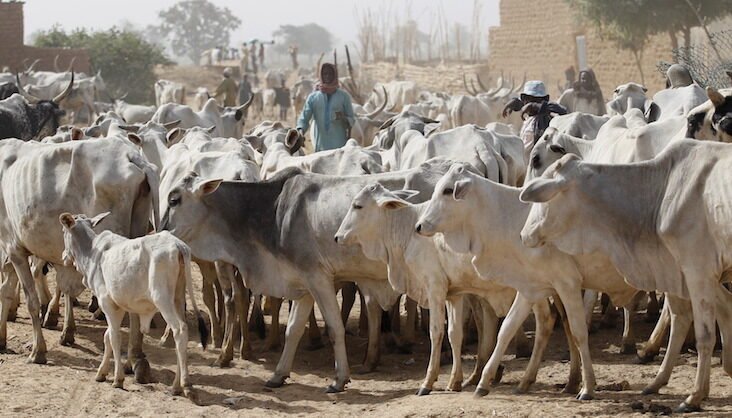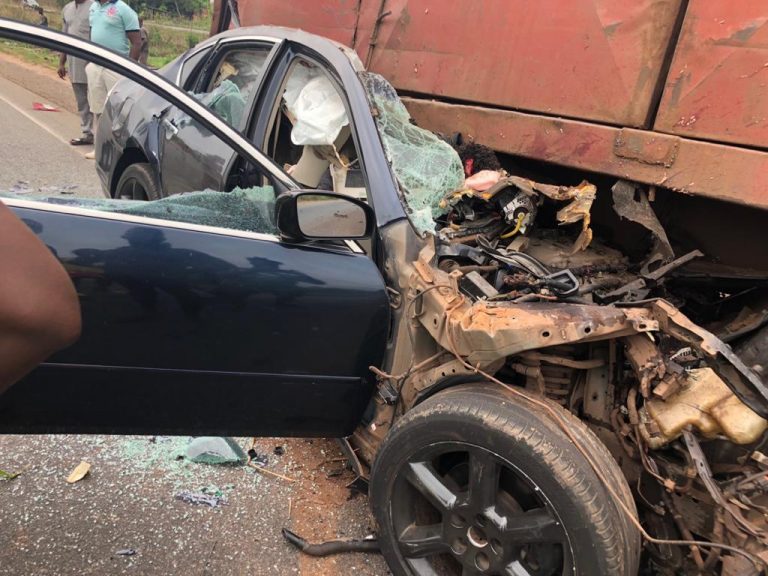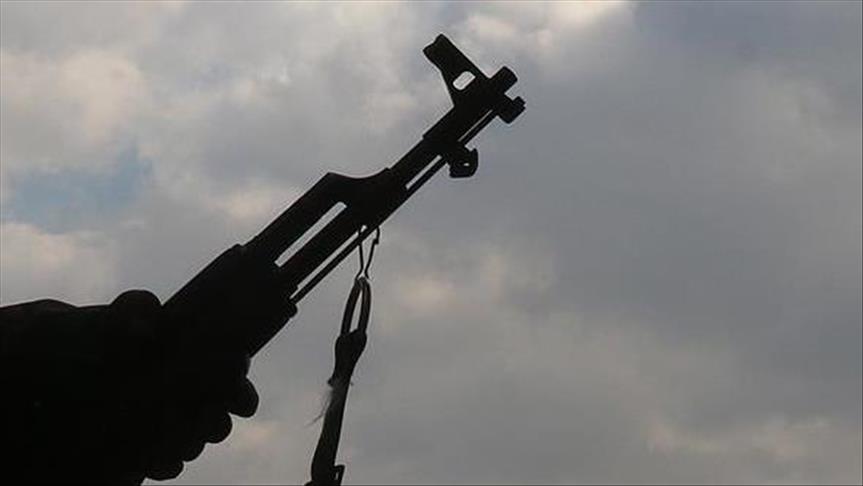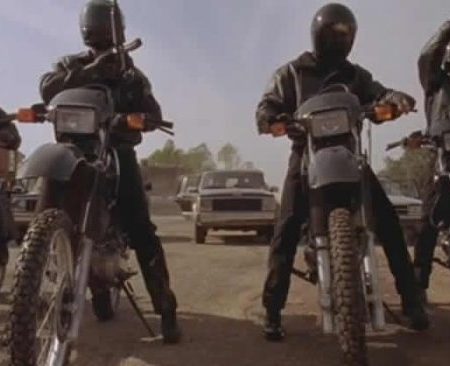Chidi Amuta
Separated by great distance but proximal in influence and geostrategic thinking, Nigeria and Afghanistan are drifting closer. For most Nigerians, Afghanistan is not exactly their next favorite tourist destination. But aspects of Afghanistan’s undulating history of trouble making and theocratic fixations are beginning to resonate more with Nigeria and indeed the rest of the world where jihadist terror has become a permanent concern.
The strategic importance of the unfolding situation in Afghanistan for our terrorism situation may not immediately concern our security experts. But the two elements that make Afghanistan a country of permanent interest are present here: jihadist violence bred by atrocious governance in a faulty state. If we recognize the interplay of these two elements in our current security headache, we had better stay tuned to the news from Kabul.
In tandem with the last minute efforts of the US to wrap up what is unarguably a nasty withdrawal and evacuation process, ISSI-K terrorists have bombed the vicinity of Kabul airport, the immediate theatre of the evacuation effort. The attack and its large casualties is a quick reminder to the US and the Taliban that the calculus of power change in Afghanistan must include the presence of terror squads like ISIS and remnants of Al Queda. To the rest of the world, especially in places like Nigeria that are wracked by jihadist terror and governance instability, there is an even more harsh and direct message from Kabul: Jihadists everywhere are emboldened whenever jihadists in one place score a triumph over a perceived great power. At such moments, the good of sectarian puritanism seems to triumph over the evil of the secular corrupt state. Jihadists everywhere jubilate through intensified violence campaigns. A latent terror virus finds oxygen and explodes to infect more places. America’s carelessness has fed a familiar monster which is returning to torment the world.
For the US and the Biden presidency in particular, this avoidable nasty outcome may not bode well for the politics of the Afghanistan misadventure in Washington. The last minute janitorial oversights may yet cause the Democrats a few sleepless nights unless they can quickly and stoutly remind Americans that Mr. Biden was merely fulfilling an agreement entered into by the tardy Mr. Trump. And in any case, Americans are better off with keeping their dollars at home to pay for weekend shopping and medicare than burying it in sink holes in a hellhole of terror.
If the containment of terrorism or indeed its reduction was touted as a benefit of the 20-year Afghan mission, this latest attack underlines the falsity of the optimism. Of course terrorist episodes remained an active part of the Afghanistan ecosystem while the American occupation lasted. The several attacks on Kabul and its environs were conveniently attributed to the Taliban.
Now the Taliban is in power. It cannot possibly bomb itself and fellow Afghan citizens. ISIS-K has rudely stepped in to announce its stake as part of the present and future of a bad place. America, its allies and the rest of the world have a new reality to deal with as this bombing is only perhaps a prelude to other acts of mayhem. Terror is its own logic and rationality.
For the Taliban, the terrorist attack at Kabul airport poses an instant credibility problem of immense proportions. The resurgent Taliban that is still clawing its way back to power in Afghanistan is busy making initial noises about a change of heart and a slightly reformed image. No one is certain what Taliban 2.0 really is. It is uncertain if it has overtly abandoned the kind of terrorism that it used to support and sometimes sponsor. The old Taliban would ordinarily turn a blind eye to the kind of gruesome attack that has just taken place in Kabul. In its original format and iteration, the Taliban remains an extremist fundamentalist movement with jihadism at its very foundation. From 1996 to 2000, the purist Sharia driven government of the Taliban distinguished Afghanistan as a safe haven for all manner of terrorist franchises. The challenge of Taliban 2.0 is to redefine its relationship with terrorism. The attitude of the world will fall into place.
While the world awaits the full meaning of the unfolding Afghan quagmire, nations with known jihadist terrorism problems can already feel the psychological impact of the Afghanistan outcome. Jihadists all over the world, are likely to be emboldened by the Afghan outcome. Nigeria’s long running Boko Haram enterprise remains an ideological off shoot of both Taliban and ISIS-type extremism and jihadism. For Boko Haram, terrorism is the principal instrument of jihadism. Therefore, the untidy exit of the US from Afghanistan is being celebrated as a defeat of the world’s most powerful superpower and the vindication of whatever ideological tenets jihadists everywhere are clinging to. Nigerian adherents to these toxic ideologies and extremist faiths are likely to be emboldened by the outcomes in Afghanistan.
Such boldness is most likely to enhance the belief that the ultimate vindication of the jihadist campaign in dysfunctional secular states is to conquer and overthrow them. This audacity is reinforced by the atrocious governance record of such failing or faulty states. For instance, the main thrust of international opinion on the reason behind Nigeria’s prolonged jihadist insurgency is the inherent dysfunction and corruption of the state. Says the London Economist: “Jihadists in north-eastern Nigeria are hard to beat because locals detest the central government and army officers sell their own men’s weapons to the guerillas and pocket the cash.”
In addition to deriving original inspiration from the Taliban, Nigeria’s Boko Haram shares traits with classical Taliban. Like the Taliban, Boko Haram subscribes to a medieval version of Islam which abhors western education and modernization. They raze schools and kill teachers. They have the same attitude to the status of women, women’s education and basic freedoms. They enslave women and prefer men with scraggy beards without grooming and have no room for freedom of expression, respect for the media and other manifestations of the open society. Jihad is its driving force. Divine ordained violent retribution against infidels is its fuel while terrorist violence remains its principal vehicle. Most importantly, there is a disturbing operational similarity between Boko Haram and the Taliban. They concentrate on the ungoverned spaces in the rural areas where they recruit and convert foot soldiers to make incursions into the urban centres. They are armed with the element of surprise in their invasion of urban centres and government targets.
In Nigeria, Boko Haram has sustained a terrorist insurgency for over a decade. It has killed, maimed, burnt down places of worship and targeted public institutions. It has serially abducted school girls and forced states to close down schools as it has a declared mission to fight against western education. The fear of Boko Haram violence coupled with violence associated with armed herdsmen and the utterances of jihadist politicians has in recent times increased the air of suspicion among Nigerian Christians. There is an unfounded but widespread belief among Nigerian Christians that the government of President Buhari may have an Islamization agenda for the country.
For the avoidance of doubt, Taliban- type fundamentalist Islam has become the laboratory of most terrorist activities in the world, powering organizations as diverse as Al Queda in Pakistan and Afghanistan, Al Shabaab in Somalia and the horn of Africa, Boko Haram in Nigeria, ISWAP in the Sahel, ISIS in Iraq, Syria and parts of Turkey. Even if Taliban 2.0 insists that it is repentant and determined to turn a new leaf, jihadist movements inspired by the original Taliban in places haunted by poverty and ignorance are not about to abandon violence and terrorism as political tools.
Therefore, last Tuesday’s bandit attack on the Nigerian Defence Academy (NDA) points in a bad direction in the nation’s expanding lethal handshake with jihadist terrorism. So far, two officers are dead while a third, who was abducted by the gunmen, faces an uncertain fate. In the process, the credibility of our military has taken a direct hit. The message is undisguised: a military establishment that cannot protect the officers and men in its premier national academy can hardly reassure the general populace of safety and security. Such a military establishment cannot justify its huge charge on the public purse or indeed its very professional capability. Why did the bandits target the NDA? Our attention should be on the historical and strategic importance of the Defence Academy in our national defence and security profile to date.
Since its establishment in February 1964, the Nigerian Defence Academy has remained the nation’s apex citadel of military training and professional excellence. In these 57 years, the Academy has become the benchmark for establishing the seniority of a succession of officers who have come to lead the Nigerian military and indeed the nation for most of our history both for good and for ill. The NDA is our equivalent of Britain’s Sandhurst, America’s West Point or India’s Indian Military Academy. It is the apex laboratory for the best training that our military can give to its officers, combining strategic, tactical, academic and practical combat training. The standard expectation is that the NDA would showcase the best capacities that our military can boast of. The terrorist attack on the institution is therefore a direct hit at the professional integrity and prestige of the military establishment. This is the first time that the security and professional credibility of the institution would be so brazenly breached and assailed.
Official Abuja has not helped itself or the citizenry with its responses to this incident. The usual attempt to find a political spin to anchor this incident has fallen flat on its nose. The attempt to politicize the incident by ascribing it to political opponents has come out as a tragic trivialization and an outright show of official foolishness. To insist, as the president himself has done, that the incident will merely rouse the military into more serious action is simplistic and pedestrian. Nor will the enlightened public buy the claim that this is the handiwork of just casual criminals or political busy bodies.
The attack on the NDA is plainly what it is: a calculated strategic targeting of a symbolic national military institution by a dangerous and methodical insurgent adversary. That adversary knew what to target, when to strike and the class of casualties to inflict without suffering any itself. This is an enemy that understands news and the value of media. A military training formation that pleads surprise as an excuse for the loss of lives and compromise of its space is deficient. The enemy that struck the NDA seems fairly determined to strike at the vertebra of national security with a clear message. That message was delivered with devastating effect. It is a bad message of demonstrating the vulnerability of even our most respected and best protected national security institutions and high points.
We cannot diminish the import of this incident by ascribing it to bandits loosely defined as squads of opportunistic criminals out to extort money from government and individuals. That is simplistic, lazy and naïve. Opportunistic business minded bandits cannot be so foolish as to expect to make money out of an attack on a government military installation. The accounting process is long and laborious. No individual will feel so pained as to dole out huge sums because the NDA was attacked and its officers abducted or killed. And in any case, why kill your captives if you need a ransom? Abducting a low level army officer in expectation of a ransom in hundreds of millions of Naira does not quite make sense. To do so in a city full of low risk targets with immense commercial heft does not fit into the mind set of any entrepreneurial set of criminals who want to carry out successful abductions and live to enjoy the loot of an attractive ransom.
Only a jihadist minded set of gunmen would dare to attack a military institution of the level of the NDA where they should expect stiff resistance. The operation was carried out fully mindful of the symbolism of the NDA in relation to the risk. To have done it and inflicted casualties without suffering any themselves indicates some degree of training and preparation that should be of interest to serious investigators. And in any event, jihadist terrorists do not care about death since it guarantees them instant martyrdom and the ultimate reward of virgins and eternal happiness in heaven.
It is foolish for our security people to continue seeing the bandits roaming most of the northern states as free mercantile agents without either an ideological or political compass. There is a contrary belief that sees the so-called bandits as the roving department of the larger Boko Haram jihadist movement. They consist of operatives trained, indoctrinated and armed by the parent organization. As foot soldiers, they have shown very good weapons training. They are more mobile than the more administratively minded master organization. They operate in smaller formations and can spread out to a wider targeted or designated territory. Their political guidance and target selection seems to be centrally controlled. More importantly, the bandits seem to be a mobile fund -raising machinery of Boko Haram. They demand and collect ransom in large sums as against the small taxes and rates collected by the parent organization. Their ransom collections seems to be geared towards reinvestment in new stocks of armaments and remittance to the parent organization for heavy logistics outlays. The funds are moved around through shadowy conduits including bureau de change operators and sundry unlicensed money changers.
Sensitive observers and analysts ought to have noted the ease with which some of their captives and abductees end up in Boko Haram camps should be of interest to our managers of violence. It would also be of further interest to security analysts to explore the relationship between the roving bandits of the northern ecosystem and the itinerant herdsmen accompanying cattle in the southern states who in the last six years have suddenly showed up with military grade assault rifles to terrorize communities, highways and settlements, robbing, killing and collecting ransom as well.
We should also be interested in the territorial focus of bandits and their operations. The axis of coverage now spans Katsina, Zamfara, Kaduna, Niger and parts of Nassarawa states with active operational flanks out to Plateau and Benue states. The most intense theatre of bandit interest seems to be Kaduna state and Kaduna city. The strategic importance of Kaduna state in matters of sectarian violence and religion inspired instability have been a permanent part of successive disruptions. In addition to being the headquarters of the original northern region, Kaduna remains attractive as the location of a number of strategic military and civilian government institutions. The long standing historical restive relationship between native Hausa and settler Fulani populations has remained a matter of serious security interest in the story of our national insecurity. It becomes a soft fault line for bandit infiltration and activity for ends that go beyond criminal extortion and ransom collection.
By most sensible intelligence estimates, there is a clear and present danger that Boko Haram and its affiliate terror squads have their eyes trained on Abuja. They have all shown a common interest in disrupting the business of the government in Abuja if only to demonstrate their capacity to challenge the prevailing sovereignty. There are very recent indications that Boko Haram is expanding its theatre of operation southwards. From its original base in the North East, Boko Haram activities have spread to Yobe, Katsina, Zamfara and lately Niger State. The governor of Niger State recently revealed that Boko Haram has taken over control of five local governments in the state and was within two hours of Abuja.
The highway between Abuja and Kaduna has become a favourite operational thoroughfare and playground of all manner of bandits and gunmen. Similarly, at the height of the Shiite campaign to free Mr. El Zakzakky, militants of the sect freely invaded Abuja and quickly turned the central business district of the city into a battle theatre of free exchange of fire with security forces. Taken together, therefore, there is a palpable but latent strategic instability around Abuja.
The city of Abuja seems surrounded by both sectarian and criminal armed threats united by a common interest in subversive disruption of the Nigerian state. Concerned interest groups and leadership factions in Nigeria have already begun to caution President Buhari to be mindful of the political risk of jihadist bandits and terror squads hovering around the northern precincts of the country. Opposition from partisan political adversaries can make Buhari uncomfortable. It is only the concerted onslaught of a coalition of Boko Haram militants and their bandit foot soldiers that pose a danger of overrunning Abuja and occupying Aso Rock Villa which they see as the citadel of an evil empire.
In all of this, there are overriding strategic implications that ought to challenge our security managers to reach beyond surface solutions. An internal security strategy that cannot see the interconnections among all jihadist forces operating to subvert the Nigerian state would fall flat on its face. Not to talk of blanket forgiveness of groups of jihadists without processing or de-radicalization. Lumping jihadists together with political secessionist mob influencers and common noisy ethno-cultural elites as regime adversaries on the same footing is even more calamitous. The Afghans are somewhat lucky. They have an option of catching an unplanned flight out of Kabul airport to some unknown safe haven. If the Nigerian state unravels under a jihadist onslaught, where will the Nigerian multitude be airlifted to?








